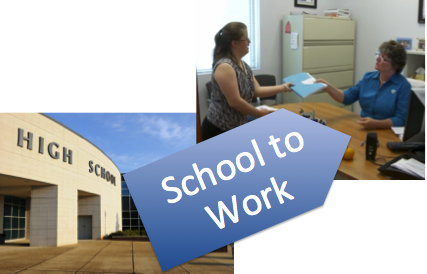Having just returned from speaking at a Transition Conference in Illinois, I was encouraged by how much enthusiasm the transition teachers there brought to learning about community employment. They took furious notes during my opening. And my breakout session, which focused on job development tools, had to be moved to accommodate everyone. The comment I heard most was, “we have never heard this type of information before!”
This isn’t so much a reflection of my speaking skills as it is the huge gap in the training special educators have available in the practical application of career planning, marketing, and job development. It seems to me that most of these type of conferences are often too wrapped in very specialized approaches, such as running a school bakery, or some other such “transition model.” Educators, like those in adult services, are always seeking the latest in such program models.
Yet, for successful transition, basic wholesale change needs to occur that is much more than some new “model” to try in the building. Schools must expand beyond their classroom walls into their business communities. They need to build career development curricula that are flexible so that they can be customized for each student. They need to turn their focus to engage their local employers, not asking for favors, but as an investment in the future labor force of their community. Most transition programs are noticeably absent in business networking and marketing, despite the fact that they are preparing a significant portion of tomorrow’s workers.
This absence critically hampers employment opportunities. Schools need to have active partnerships with their local business for career exploration, job site training, resume development, and soft skill training, not to mention job experience. Without marketing plans in place, employers have no idea how schools can function as resources to their business.
Most teachers have a good background in task analysis and training, but I find there is a tendency to over-rely on this approach to solve all work problems encountered. In the world of employment, training isn’t always the answer to hiring and job success. Accommodations, natural support, and individualized job matching can bring much greater results more immediately.
My takeaway from spending some time with transition staff is to acknowledge how much you care about your students and how hard you are working. But it is time for educators to bring in some employment advocates and trainers who can help you build real-world opportunities to keep your graduates from ever seeing the inside of sheltered workshop.

